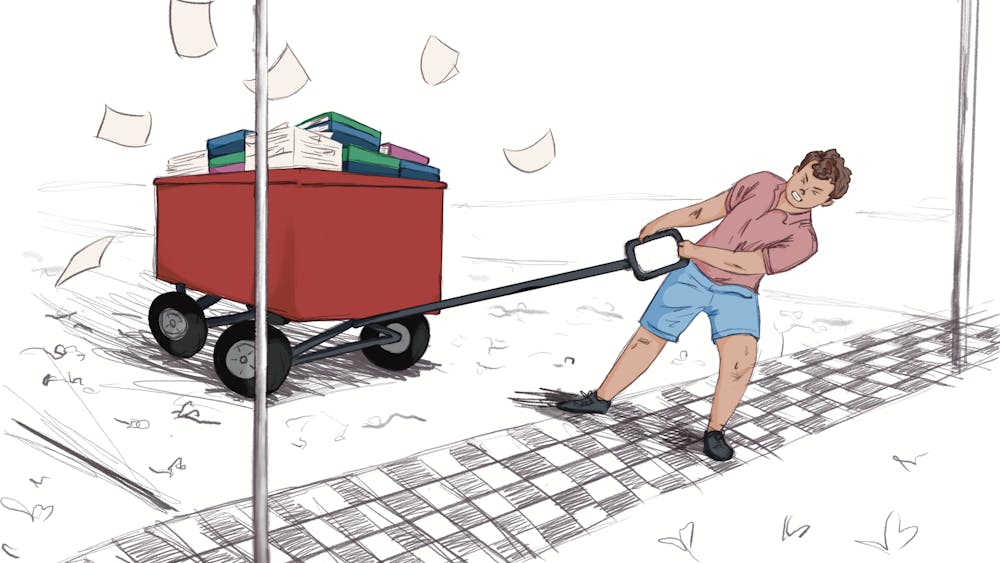We’ve all been there at some point in a high school literature class where we’re assigned to read and analyze a book written well before this century.
These books are usually placed high upon a pedestal of greatness.
We continuously praise their importance because they’re classics and stand as pillars of a higher level of ?writing.
These works go beyond the popular category because they have been trendy for decades. Now they have become legends in the book community. But in actuality, I wonder if these classics hold any significance for today’s generation.
To be frank, old does not necessarily mean good. I’ve never known someone my age to enjoy reading “ Crime and Punishment” by Fyodor Dostoyevsky .
Through the years, I’ve noticed a phenomenon similar to a language barrier between students and older texts. The dense phrases and wordings prevent a connection for many of today’s readers.
SparkNotes becomes the epitome of aid for texts that read beyond our ?comprehension.
I remember when my eighth-grade literature class started reading “ Frankenstein” by Mary Shelley, and we had to switch to “ Z for Zachariah” by Robert C. O’Brien because it was more “relatable.”
I’ve never lived in a post-nuclear world by myself or manifested a monster, so I fail to see how either remains ?applicable.
The teacher of my class later revealed to me in private that the switch occurred because most students in the class could not follow the thick reading.
Now, that’s not to say all classics are too dense for our lovely brains.
Most students enjoy reading “The Great Gatsby” by F. Scott Fitzgerald, and “Dracula” by Bram Stoker rests on my bookshelf among other favorites.
This makes me wonder what future generations will consider classics from our time. One could assume our own classics will stem from award-winning novels, but maybe our most popular works will outshine the critically acclaimed.
Would a novel like “ The Hunger Games” by Suzanne Collins make the list?
Or is a Pulitzer Prize-winner like “ The Road” by Cormac McCarthy more appropriate?
I’ve started reading “ Wuthering Heights” by Emily Br ö nte for the past week in hopes to find a connection with the romantic classic.
While reading, I noticed I picked this book because of its status as a timeless novel, which makes me wonder if I would have ever chosen the book to begin with if I had not known of its prestige as a ?classic.
I’ve realized the only difference between the classics and today’s books is we have been told for years these old texts hold significance. But just like any other work of literature, it’s up to the reader to determine this.
So what’s the point in reading these old books anyway? We read them because they stand as hallmarks to give us an idea of what literature during a certain time was like.
They provide a certain aspect of historic entertainment generations of people participate in.
To forget where you come from is ignorant at best, so reading books from the past educates us in the history of reading.
Try out a golden oldie, and see if you can connect with a work written well before your time. You might just love it.





